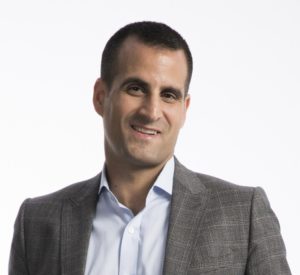
Purpose Investments Inc. says it has been cleared by Canadian securities regulators to launch the Purpose Ether ETF, which would be the first direct-custody Ether [Ethereum] ETF in the world.
While there already exist Ethereum-owning closed-end funds trading both on US and Canadian exchanges, Purpose said in a press release Friday that its new Ether ETF is designed to provide investors with exposure to the popular Ether cryptocurrency by investing directly in physically settled Ether tokens. The ticker symbol will be ETHH, available in three classes of units: Canadian dollar currency hedged units (ETHH); Canadian dollar non-currency hedged units (ETHH.B) and US dollar units (ETHH.U).
“While Bitcoin tends to get a lot of attention as it was the first major cryptocurrency, what Ether and the Ethereum ecosystem represent is one of the most exciting new technology visions today in society,” said Purpose founder and CEO Som Seif, “By launching the first ETF in the world that directly owns and provides exposure to Ether, we are enabling every investor to have access to this unique opportunity and ecosystem.”
Invests directly in physically settled Ether
The ETF will be the first in the world to invest directly in physically settled Ether. The ETF provides investors easy access to the emerging asset class of cryptocurrency without the associated risk of self-custody within a digital wallet. Similar to the Purpose Bitcoin ETF and other physically backed gold or silver products, the ETF will always be backed directly by physically settled Ether holdings, the company says.
Purpose will act as manager of the ETF while Ether Capital Corporation — a company with long-established expertise in digital assets — will act as a special consultant to Purpose.
“Our role in Purpose Ether ETF is to help make sure the more complex aspects of cryptocurrency ownership and transactions fit together,” said Brian Mosoff, CEO of Ether Capital. “We focused on addressing key issues relating to Ether custody, transactions and liquidity. Ether is the cryptocurrency we believe has the most potential for the future and is where our expertise really lies.”
Ether holdings will be kept in “cold storage” — the most secure custody solution in the market. As it did with Purpose Bitcoin ETF, Purpose Investments is working with Gemini Trust Company, LLC as sub-custodian and CIBC Mellon Global Securities Services Company as fund administrator.
The ETF’s daily NAV will be priced based on the daily spot price of the TradeBlock ETX Index.
Purpose Bitcoin ETF, which launched February 18, 2021, has attracted more than C$1.4 billion in assets since its launch, which it says makes it “one of the most successful ETF launches in history.”






